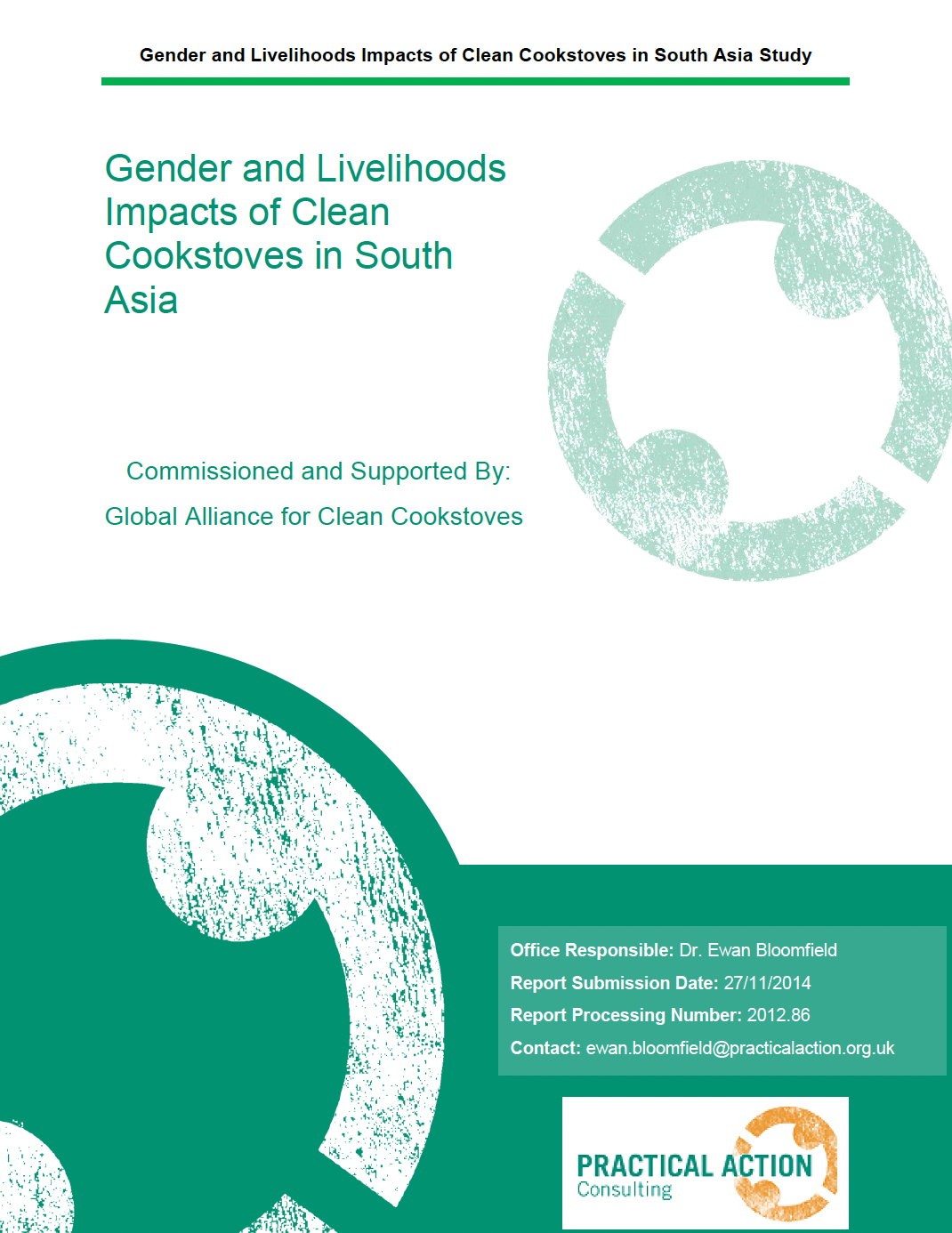This study commissions by The Global Alliance for Clean Cookstoves and conducted in partnership with Practical Action, analyzes the gender impacts of clean cooking solutions on households that have adopted them, as well as women’s current and potential involvement in ICS market systems in each of the three South Asian countries: India, Bangladesh and Nepal.
The study concludes that women who use cleaner, more efficient cookstoves spend 70 fewer hours per year collecting fuelwood and use less fuel than those using traditional stoves. Key findings include: women spend approximately 374 hours every year collecting firewood in India; female-headed households are more likely to adopt cleaner cooking solutions than male-headed households; and women who are part of social groups are more likely to own an improved cookstove. The study also finds that women spend four hours a day cooking with traditional stoves, and can save one hour and 10 minutes when using a clean cookstove; and that children from households with clean cookstoves spend more time in school.




